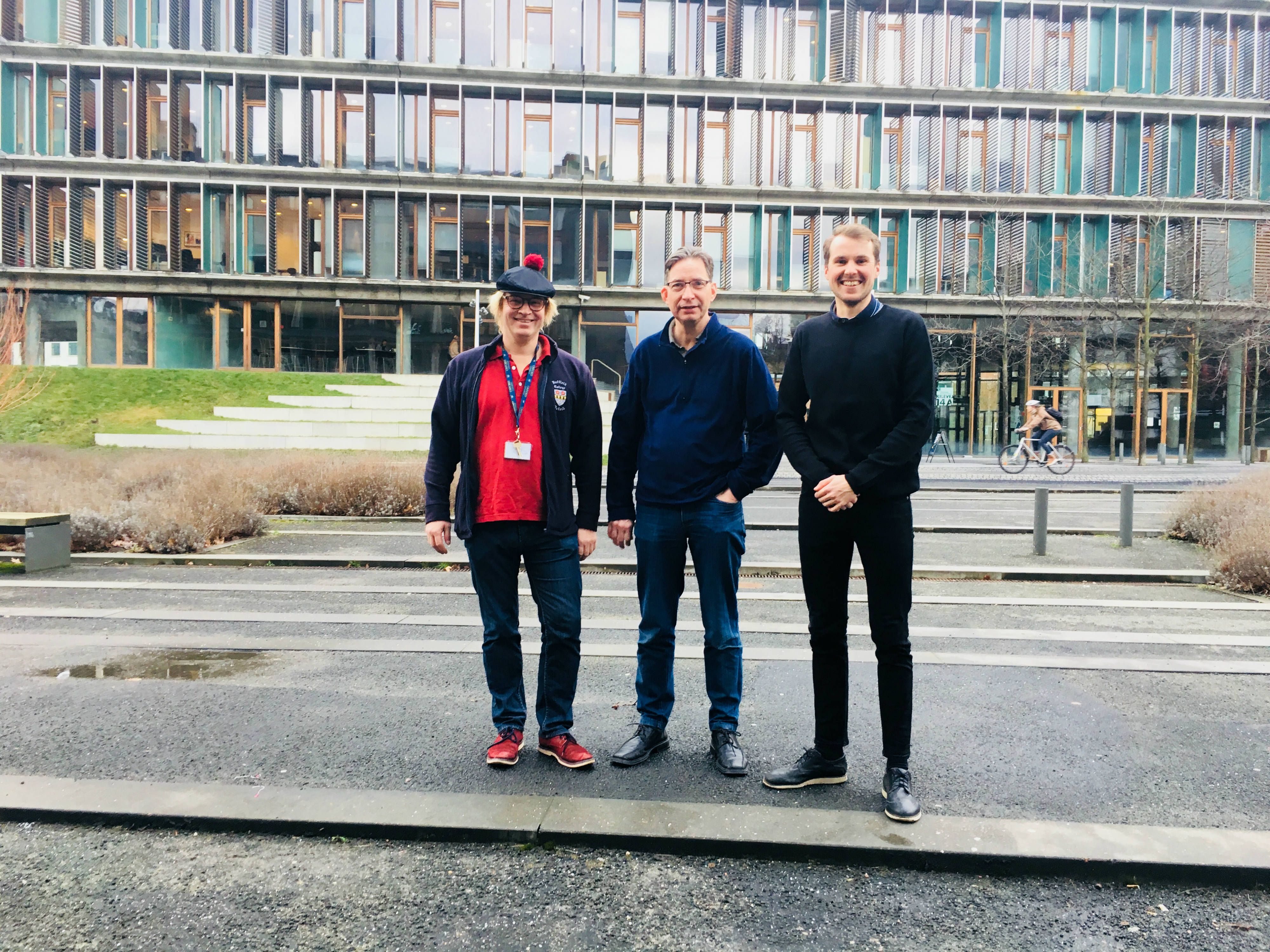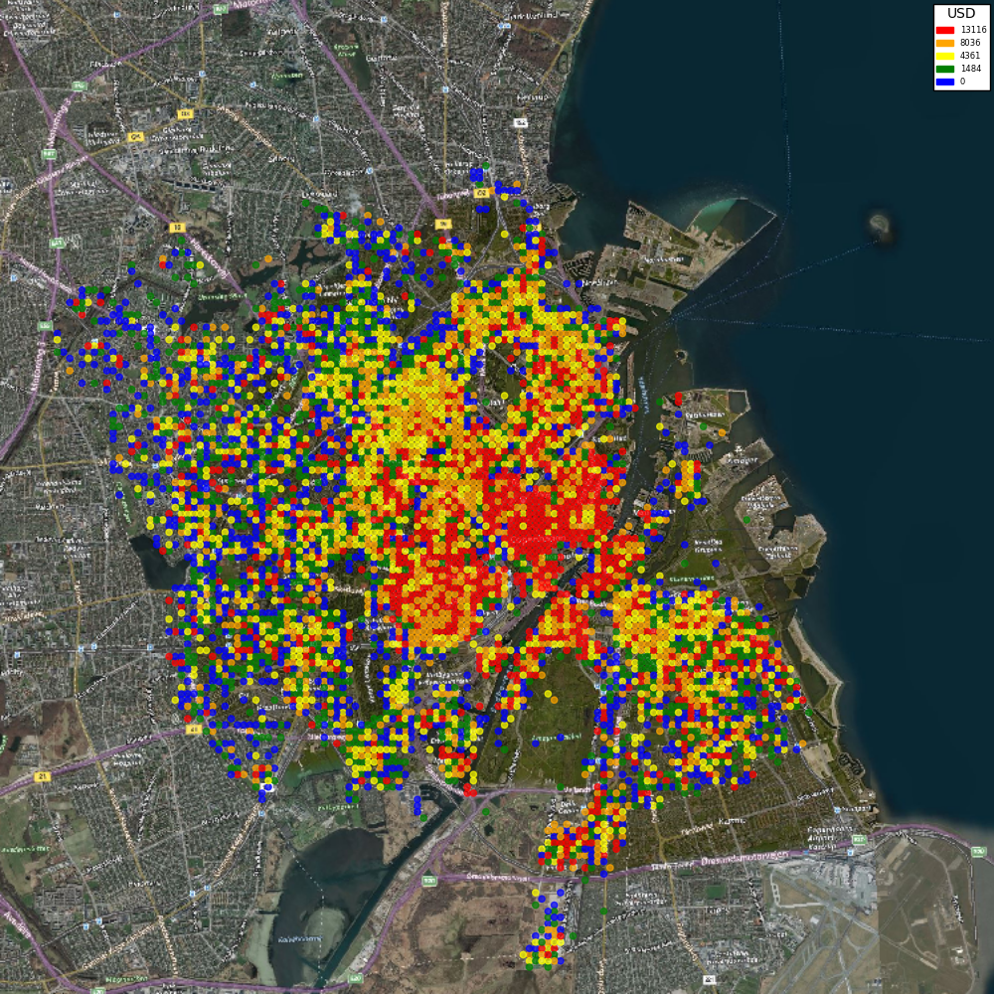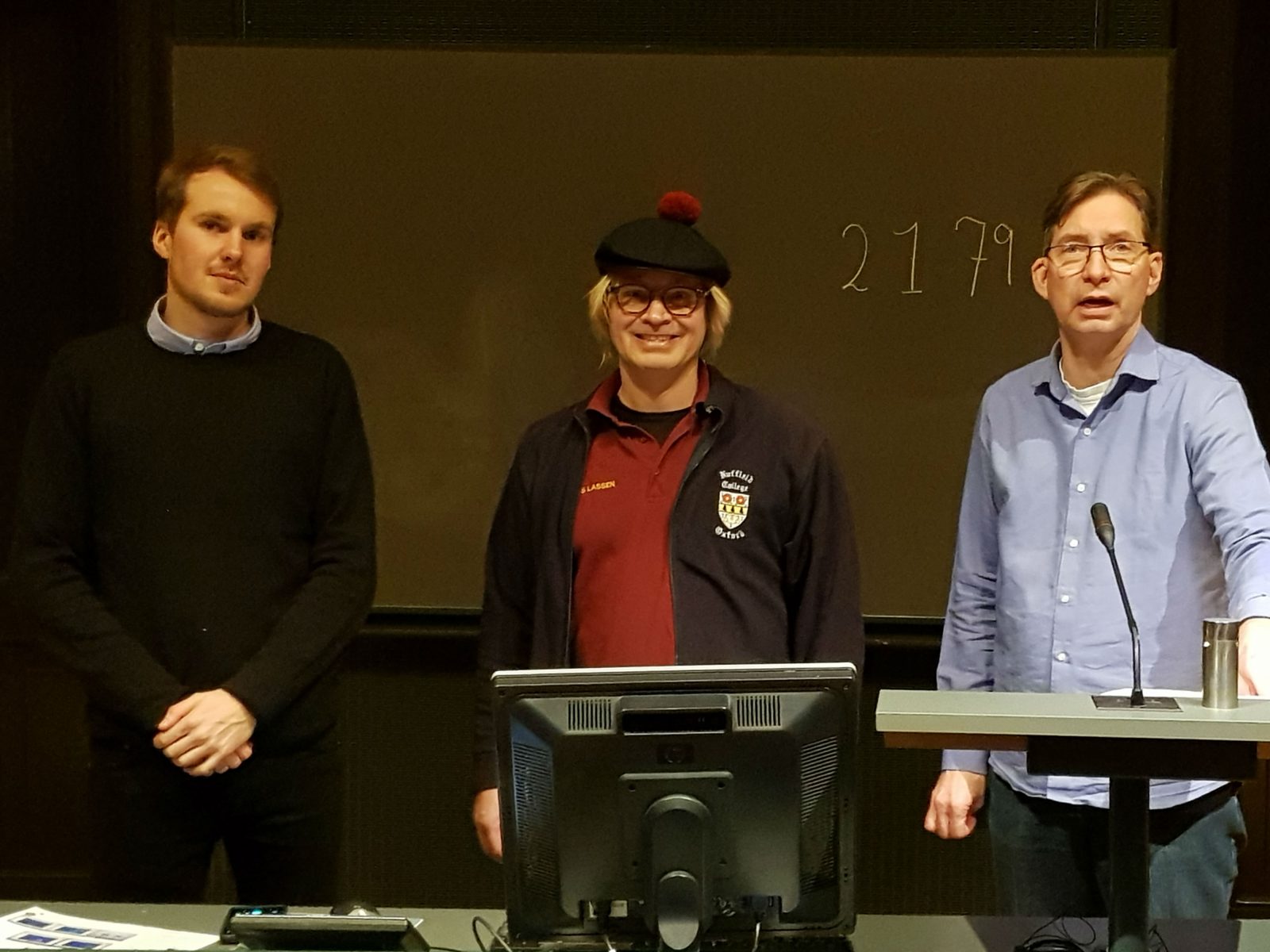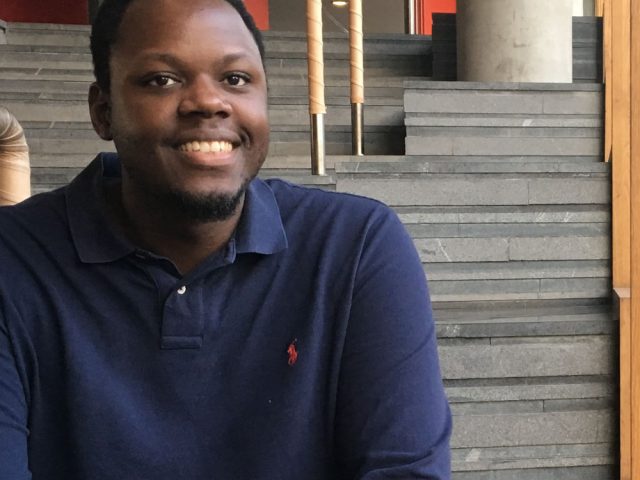Artificial intelligence: A fortune telling-machine in the making

Niels Buus Lassen, René Madsen and Mads Krarup are working to make artificial intelligence usable within economics, marketing and sales. (Photo: Anne M. Lykkegaard)
Three researchers from CBS have built an artificial intelligence model, which learns in order to predict Airbnb sales with over 90 percent accuracy. It is outdoing previous models by 10 percent. Even though the use of artificial intelligence is at the state of steam engines, it’s developing at a fast pace.
Humans have, since the beginning of time, wanted to predict the future. Who will I get married to, how many children will I have, am I going to die wealthy and rich, or poor as a church mouse?
Such thing can only be predicted by scruffy fortune tellers for an exorbitant price.
However, there are things we can predict, and with high accuracy.
Three researchers from the Centre for Business Data Analytics at CBS have successfully built a neural network, a so called artificial intelligence (AI) (see fact box), and predicted Airbnb sales with over 90 percent accuracy. That is 10 percent better than older prediction models.
“This result is very exciting. We knew the old models would do a good job, but we had no idea that AI would be so much better at predicting Airbnb’s sales. With these results, we can start looking into other areas and create cool results. This has whetted our appetite for AI,” says Niels Buus Lassen, PhD Fellow at the Department of Digitalization at CBS, who is part of the research project along with René Madsen, Associate Researcher, and Mads Krarup, former CBS student and part of the Centre for Business Data Analytics.
Predicting Airbnb sales with the help of artificial intelligence may seem like a small achievement compared to predicting diseases, but in fact it’s quite unique, explains Niels Buus Lassen.
“Artificial intelligence has proven its worth within health care. With millions of medical records, AI can diagnose patients with at least the same accuracy as a doctor for many diseases. But AI still hasn’t proven to be largely useful within economics, marketing, and sales. That’s what we are trying to do by predicting Airbnb sales,” he says.
The researchers presented their results on the 22nd of January at the Symposium for Anvendt Statistik, at the University of Copenhagen, and their results will be available through Statistics Denmark shortly after the presentation.
The AI steam engine
When someone says artificial intelligence, some people might instantly think of highly intelligent robots taking over the world. That’s not quite where the technology is at the moment. René Madsen is comparing the state of the technology with steam engine tractors: slow and inefficient.
Society develops. Technology develops. All in the sense of making it easier for us to live.
René Madsen
However, it’s still about to outsmart older models, because they have the capability of learning and optimizing.
“Artificial intelligence is just a better wand. It can deal with data and issues in a way that the old predictive models can’t. Then, the neural network can continuously optimize and learn things,” says René Madsen and gives an example of how the system can learn.
“Imagine you have two brands of beers in front of you. A Carlsberg and a Tuborg. So, you drink 1,000 Carlsberg and 1,000 Tuborg in order to learn how they taste. In a blind tasting, you would then be able to say whether you are drinking a Carlsberg or a Tuborg. This is what we do with this neural network. We train it by feeding it a lot of Airbnb data, and eventually it’s ready to make good predictions with a high level of accuracy,” he says.
Airbnb – the disrupter
The researchers are part of the Centre of Business Data Analytics at CBS, and they make a lot of predictions.
Researchers from that center have previously had success in predicting the sales of iPhones based on tweets, and they have also predicted the number of viewers ahead of the international football match between Denmark and Ireland last year, on the 11th of November, based on posts, comments, and likes on the men’s national football team’s Facebook page.
Originally, Mads Krarup made predictions of Airbnb sale based on Google searches for his exam project while he was doing his bachelor in Business Administration and Economics at CBS. It then became a natural choice to continue working with Airbnb as the focus point after his studies.
Mads Krarup, René Madsen, and Niels Buus Lassen then decided to buy access to a larger data set containing 20,5 million lines of Airbnb data that they could work with. The data contained information about, for instance, the number of rooms and apartments available, the number of days that they were rented out, transactions, GPS coordinates, and so on. In the end, the team scaled down the data so that they only had to work with 2,6 million lines of data in total.
“The model we have made can predict sales in January, one week before the month ends. Likewise, it can predict the quarter one week before the quarter ends. Both with over 90 percent accuracy,” says Niels Buus Lassen with excitement in his voice.

The highest revenues are primarily to be found in the city center of Copenhagen. (Illustration: René Madsen)
Airbnb is, according to Mads Krarup and Niels Buus Lassen, very interesting to look into, as it is disrupting the housing market and politicians need to take Airbnb into account when they try to predict economic cycles.
“One of the larger national banks in Europe is very interested in our work, as it would be of great value for them to incorporate the predictions of Airbnb sales in the national budget, since it brings in millions to the Treasury every year,” says Mads Krarup.
Niels Buus Lassen adds:
“Airbnb is disrupting the property market, and the politicians can’t close their eyes to this. When they regulate the housing market, they need data on Airbnb. In this way, Airbnb is interesting in itself, but we want to test the model on other sets of data,” he says.
Predicting Airbnb’s sales is not only interesting for politicians. People renting out a room or an entire flat can optimize their revenue if they keep a close eye on Google searches, explains Mads Krarup.
“Since Airbnb is driven by you, me, or our neighbors, it is interesting to see how we, as landlords, can optimize our revenue by adjusting our prices according to search behavior on Google when tourists plan their travel to Copenhagen,” he says.
Don’t worry. The robots are not coming to eat your cereal
Mads Krarup
The researchers imagine that the model will be useful in making other predictions for big brands like Nike, Adidas, Carlsberg, and LEGO. And that’s not only in the interest of the brands, but also for you and I.
Get yourself a personal AI-butler
As it is now, it may seem like AI predictions are only to the advantage of companies, but that’s not necessarily so.
René Madsen argues that if the shops become better at predicting the sale of, for example, a special pair of Nike shoes, the customers will not experience running into sold out-signs.
On the other hand, customers can also predict when it’s the best time to buy a certain product before the price increases.
“These kinds of predictions are more or less about logistics. It is, in the end, well organized logistics that decides if your local supermarket has run out of Norwegian salmon. By predicting the sales of certain products, the logistics department will be better prepared and can deliver the right amount of products,” says René Madsen.
But why spend time doing research in artificial intelligence at all?
“Society develops. Technology develops. All in the sense of making it easier for us to live. We replaced horses with cars and stairs with elevators. And that’s what we are doing with AI. We are trying to make AI useful, so that in the end, it can help us in making decisions,” says René Madsen and continues:
“At the moment, we have great issues with the climate and diseases like cancer. Figuring out how affect the climate, and how our living affects our chances of getting cancer are huge questions, which no human can answer without help. But by feeding the machines with a lot of data, they can go on and on tirelessly,” he says and explains that earlier on, it could take generations to change the state of things. But today, we have changed society and our way of living within one generation.
“We are having more breakthroughs and at a faster pace,” says René Madsen.
The researchers also note that machine learning AI will not be taking over the world right this moment.
“Don’t worry. The robots are not coming to eat your cereal. That’s not how it’s going to end. But we can still do things in a smarter and more efficient manner,” says Mads Krarup.





































































































































Comments